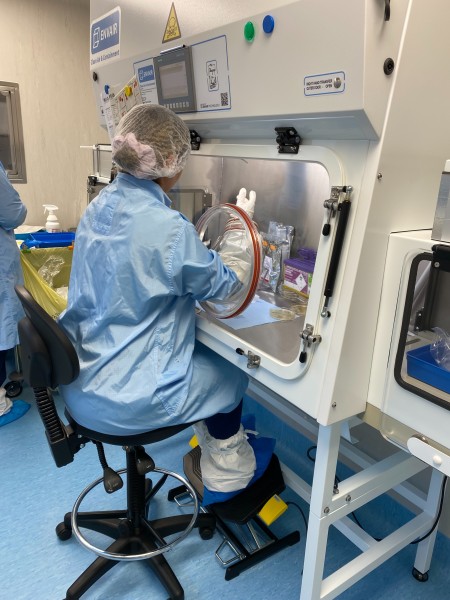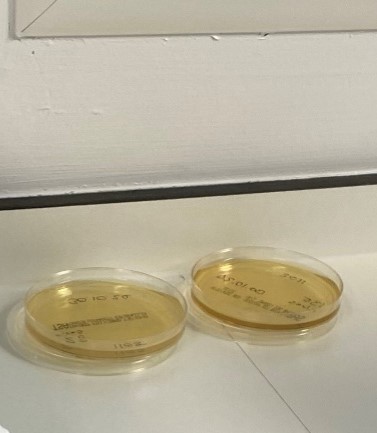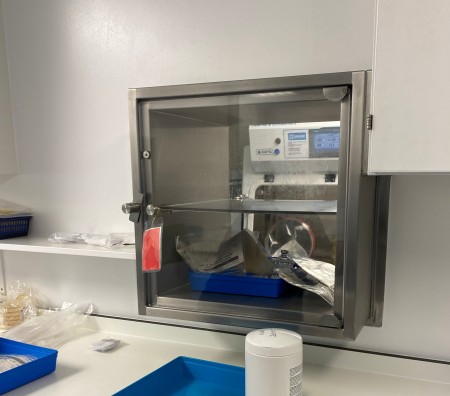Publish date: 18 November 2024

The Aseptic Unit, located at the main Blackpool Victoria Hospital site, is a sterile environment where pharmacy colleagues produce medicines such as chemotherapy treatments and intravenous nutrition (a method of delivering nutrients directly into the bloodstream through a vein). Chemotherapy is made bespoke to every patient, the doses of medications are decided by many factors including the patient’s weight, height, and kidney function.
Lara Scowcroft, Aseptic Unit Manager, says: “The Aseptic Unit is made up of a range of pharmacy professionals working together as a team to carefully prepare bespoke doses of high-risk medicines. Although we do not see the patients we treat, we keep patient safety at the heart of everything we do and always strive to provide the best service possible”.
On average the unit produces over 70 cancer treatments a day. There is a very rigorous process involved in the preparation of the treatments and ensuring the safety of both the recipient and the operators.
To mark the awareness month the team has shared, in more detail, the process used to ensure
The Aseptic Unit is comprised of two support rooms and four isolators which are specialist machines where the operators make the required medicine to ensure that it does not get contaminated.
To ensure the quality of the environment, sample dishes are laid out in the morning and afternoon, and operators also do a glove fingertip test, these are then sent off to an independent laboratory for testing every day.

The team wears protective clothing such as coats, gloves, hair nets, boots over shoes and use gloves built into the isolators when handling the products to ensure nothing is contaminated.
When the unit receives an electronic prescription they begin the preparation process and put together both the ingredients and instructions on how to make the treatment. This is then thoroughly decontaminated by wiping and spraying with two different cleaning agents and then transferred into a preparation room, where the isolator is housed, via a window.
The isolator acts as a one-way system, the unassembled product goes into the door on the left and comes out the door on the right once it has been made. The doors on the outside and inside of the isolator cannot be opened at the same time ensuring that there is no contamination to the environment of the isolator and the wider room.
Once any medicine or treatment has been made this is then checked over by a pharmacist to ensure its quality and safety before it can be administered to a patient.
The team puts together many types of chemotherapy drugs that have varying expiry times after which they cannot be used. These times can range from seven days to two hours from when it is made for it to be checked and administered to patients.
Pancreatic cancer is not a rare cancer – one person dies from the disease every hour. Across the UK around 8,800 people are diagnosed with and 8,700 people die from pancreatic cancer each year.
Find out more about Pancreatic Cancer here: Pancreatic cancer - NHS



